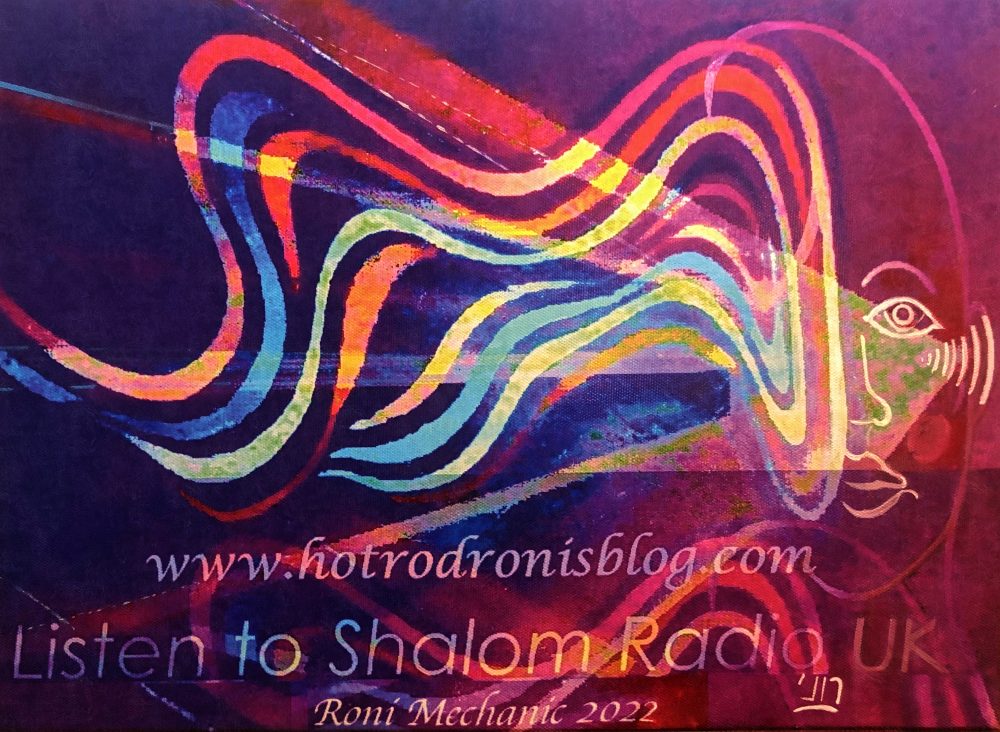When one reads the English Bible one gives little thought to the original tongues it was written in. Unless you have had a classical education you may know little if anything about Hebrew, Aramaic and Greek, which are the original languages of the Bible. The Hebrew Bible (Old Testament) is mostly written in Hebrew with a few section written in Aramaic.
With the turmoil of the dramatic changes and upheavals in Eastern Europe during the end of the 19th and early part of the 20th century and persecution under the Czars there was mass movement of people, and this particularly affected the Jews. As the numbers grew of those who moved to Palestine under the Ottoman Turks, the new arrivals brought with them their culture and languages. Yiddish, Russian, Polish, French and German together with their sacred texts written in Hebrew which was the language of the Bible and Synagogue, but not a spoken language.
Many of the new arrivals felt that Yiddish (Medieval Judeo – German language), should be the national spoken tongue, but others felt that that was the language of the their exile and was not what should become the national language of those who were returning. One such person was Eliezer Ben-Yehuda (Perlman). He was the driving spirit behind the revival of the Hebrew language in the modern era.
Eliezer Ben-Yehuda and wife Hemda, arrived in 1912 from Vitebsk Oblast, Belarus – “On a dreary, autumn morning in October 1881, a young, newly married Jewish couple were carried on the shoulders of Jaffa’s boatsmen onto the quay from a steamer anchored offshore,” so records an essay by Reuvan Sivan describing this new immigrant couple’s arrival in Ottoman Palestine (p 35, Ariel, Number 25, 1969).
He had a thorough grounding in Biblical Hebrew from his early childhood from the age of three as was customary among the Jews of Eastern Europe. By 12 he had read large portions of the Jewish Sacred texts (Torah, Mishna, and Talmud) Like many other bright young men of his age his parents hoped he would become a rabbi, and sent him to a yeshiva (Jewish theological academy). There he was exposed to the Hebrew of the enlightenment that included some secular writings. Later, he learned French, German, and Russian. He became acquainted with the early movement of Zionism and concluded that the revival of the Hebrew language in the Land of Israel could unite all Jews worldwide.
Upon graduation he went to Paris to study at the Sorbonne University. Among the subjects he studied there were history and politics of the Middle East. While he was in Paris he met a Jew from Jerusalem, who spoke Hebrew with him. It was this use of Hebrew in a spoken form that convinced him that the revival of Hebrew as the language of a nation was feasible. Ben-Yehuda spent four years in Paris.
So, having started a new life in Palestine, he and his family settled in Jerusalem. He found a job teaching at the Alliance Israelite Universelle School. Enthused with idealism he rejected the diaspora lifestyle, and this motivated Eliezer to develop a new language that would replace Yiddish and other European languages as the way Jews who made aliyah (come up to the land) from many parts of the world. He regarded Hebrew and Zionism as symbiotic (living together in close relationship): “The Hebrew language can live only if we revive the nation and return it to the fatherland,” he wrote.
With this ideal in mind Ben Yehuda insisted together with other members of the Committee of the Hebrew Language that, to quote the Committee records, “In order to supplement the deficiencies of the Hebrew language, the Committee coins words according to the rules of grammar and linguistic analogy from Semitic roots: Aramaic and especially from Arabic roots” He turned his family and small circle of friends into a language laboratory where only Hebrew was spoken.
Journalistic career
Eliezer Ben-Yehuda while working on his dictionary was the editor of several Hebrew-language newspapers: He faced severe opposition from Jerusalem’s ultra-Orthodox community, which fiercely objected to the use of Hebrew, their holy tongue, for everyday conversation.
Lexicography
Ben-Yehuda was a major figure in the establishment of the Committee of the Hebrew Language (Va’ad HaLashon), later the Academy of the Hebrew Language, an organization that still exists today. Like Dr Samuel Johnson who compiled the first English dictionary, Eliezer became the author of the first modern Hebrew dictionary and became known as the “reviver” of the Hebrew language, despite opposition to some of the words he coined. Many of these words have become part of the modern Hebrew language with his contribution numbering about 2,000 words.
Modern Arabic was a major source for Ben-Yehuda and the Committee. The Committee coined words according to the strict rules of grammar and linguistic analogy from Semitic roots with reference to Aramaic, Canaanite, Egyptian and as mentioned particularly words from Arabic.
In his book Was Hebrew Ever a Dead Language, Cecil Roth summed up Ben-Yehuda’s contribution to the Hebrew language: “Before Ben‑Yehuda, Jews could not speak Hebrew; after him, they did.”
Today, with technological advances many European words have been added and suitably modified into modern Hebrew usage. Examples such as televisia, electornica, technikiye, telphon to mention just a few. As a living language Hebrew also has it “urban” terminology – salat vcheeps (salad and chips).
Language is a vital and integral part of modern culture and Eliezer Ben Yehuda will always be saluted as one of its pioneers and heroes.
Reference
Many references for this short essay come from http://en.wikipedia.org/wiki/Eliezer_Ben-Yehuda
